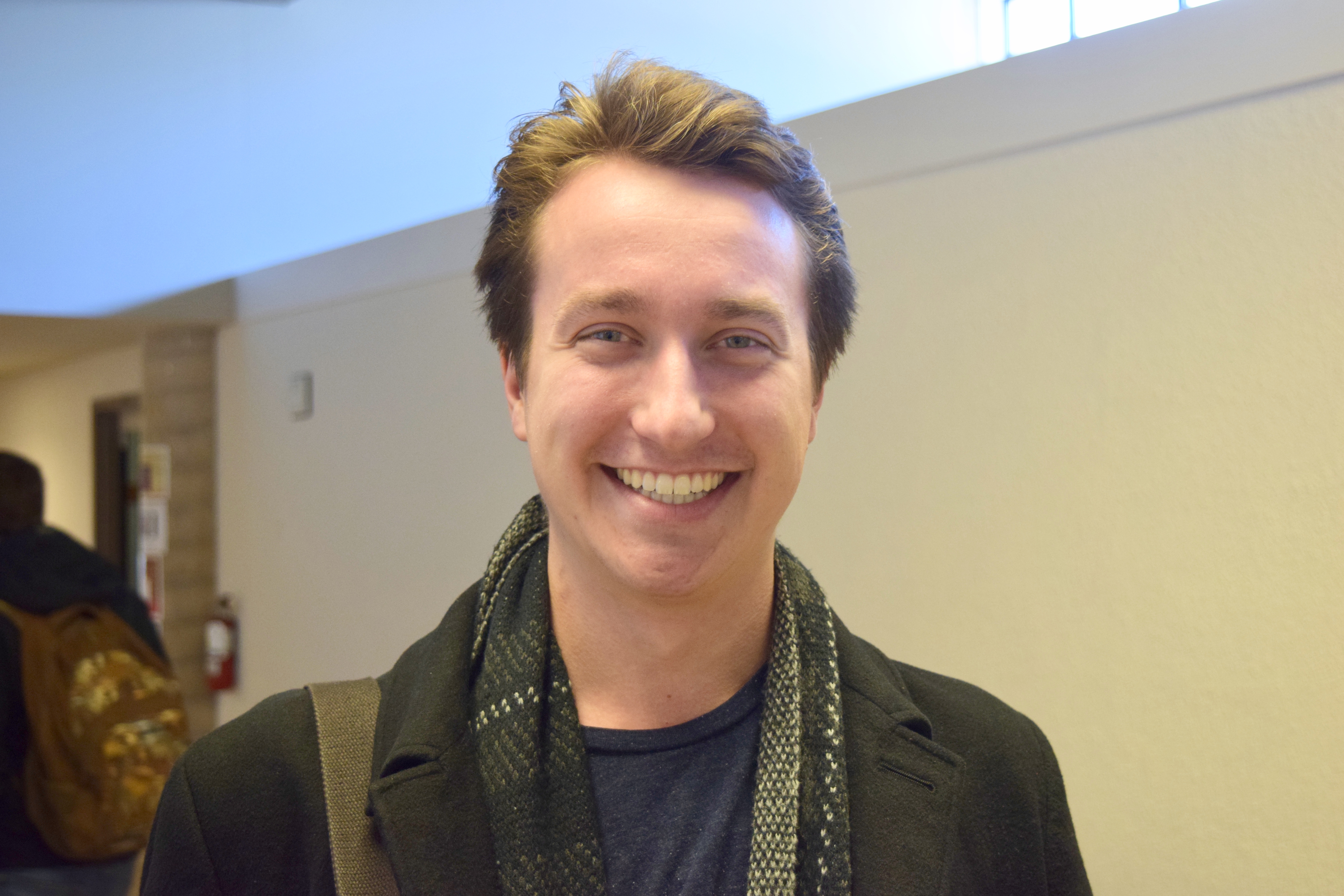“May Acadia achieve greater glory than ever in the years ahead, and by the grace of God may increasing numbers of those passing through her halls go forth to spend and to be spent for the building of the Kingdom of God, which includes that goodwill, peace and brotherhood which only Christ can give working through dedicated Christian leaders in every vocation of life.”
These words in The Maritime Baptist from March 20, 1963 illustrate a tension that would explode on campus only years later. The relationship between the Baptist Convention and the university has been a complicated one, filled with proud moments and profound heartbreaks.
Acadia was founded in 1838 after the Baptist Education Society met in Wolfville and resolved to establish a college. By December 7th, public notice was given that classes at the new college, tentatively named Queen’s College, would begin January 20th, 1839. The charter for the college was passed in 1840 under the condition it changed its name to Acadia College.
Two professors taught at the college when it first opened- the Rev. John Pryor and the Rev. Edmund Crawley. Isaac Chipman was later added to the teaching roster, adding considerable energy and enthusiasm to the college. He drowned along with most of Acadia’s graduating class off Blomidon in 1852.
By 1847, the college was in debt. The Baptist community offered to help pay off the debt if control of the college was given to the Maritime Baptists rather than the Baptist Education Society. This would have repercussions on who sits on the Board of Governors today.
The Convention of Atlantic Baptist Churches had been established in 1846 to promote Baptist interests in the Maritimes. As founders of Acadia they commanded the majority on the university’s Board of Governors, pushing the university to fulfill its role as a place to refine Christian morals.
By the 1960s, things began to change. The current Acting Dean of Arts, Dr. Barry Moody, was a student from 1963 to 1967. “It took some time for [the Baptists] to come to terms with their new relationship with the university and how an institution such as Acadia could be both a respectable institution of higher learning and a vehicle for the denomination.” These sentiments were echoed in an editorial from the July 10th 1963 edition of The Maritime Baptist, with the author expressing anguish over Baptist unity in Canada and how only “cooperation can best further the work of Christ’s Kingdom” in Canada.
Acadia was the subject of much discussion in The Maritime Baptist. As anxieties about the future of the institution mounted, so did editorials. Published in October 1963, the Baptist wrote how “Acadia has been impregnated with a sense of Christian mission”, noting how “the mission of Acadia has been that her sons and daughters acquire knowledge and skill to go forth to bring, by the grace of God, light and truth, in the broadest sense of those words, of all God has revealed to His people”. This particular editorial noted that there was a “grave danger that [Acadia] will ‘grow out of’ the United Baptist Convention of the Atlantic Provinces”. Consequently, the Maritime Baptist called for the immediate formation of a commission to examine the relationship between the university and the Convention.
Anxieties continued to mount when Acadia picked a new President. Dr. James Beveridge, B.Sc., M.D., Ph.D, Dsc., F.R.S.C was appointed by the Board of Governors to succeed Watson Kirkconnell in 1964, the first non-Baptist to hold the position. However, Dr. Beveridge did hold several ties to the Baptist Church. Former University Chaplain from 1985-2007 Roger Prentice noted how “even when Dr. Beveridge was in Montreal or New York City, if he was going to miss a service, he would phone the minister personally to tell him.”
Dr. Beveridge was adamant that the future of Church-University relations lay in compromise. He drew two red lines to ensure cooperation between both sides- the faculty must have complete freedom as to what they teach and how they teach, and the relationship between the University and Church must not interfere with the development of the university. The Baptists tried to block his appointment as President on the Board of Governors and even sent a delegation to his classroom at Queen’s University in Kingston, Ontario to try and dissuade him from accepting the position.
The Baptist Convention reacted swiftly after Beveridge’s appointment. In an editorial from December 11th 1963, the author quickly noted how “Acadia faces a crisis” because of the lack of Baptist control of the university and how the Baptist convention must decide the university’s fate instead of the Board of Governors. The author noted how the Convention believed in “a continuing responsibility as well as high privilege of Christian mission in higher education”, lest Acadia should grow out of the Convention.
Other editorials quickly offered their opinion. The Athenaeum at the time was, according to Dr. Moody “a more radical fringe on campus” that served as a vehicle to convey student interests. The newspaper was able to rattle the cage of both the Board of Governors and the Baptist Convention by reporting extensively on the situation to the point of embellishment.
Supporters of the Baptist Convention noted in The Athenaeum that “the integrity of a professor lies in his professing Christianity- not an academic discipline”. The same author noted how “We are frightened that some of our faculty members, being non-Christians, and therefore viewing these decisions in a way non-Christians would view them, might perhaps misunderstand the fact of their inadequacies.”
Sensing their control of Acadia fleeting, the Baptist Convention met in the summer of 1965 to approve a resolution that would require all professors to be Christian and shorten the term of present members on the Board of Governors from six years to three. This would have given the Baptist Convention complete control of the Board by 1968.
The Convention also debated a resolution calling for control of all academic and campus activities and publications, but was referred back to a committee. This would have had the effect of taking editorial independence of The Athenaeum and control of classes away from professors and Deans and put solely into the hands of Baptists.
Students quickly condemned the move. The front page of The Athenaeum on September 24th, 1965 boldly declared student opposition to the heavy-handed moves by the Convention but “expressed support of the Acadia University Alumni Association, which is seeking to have Baptist-elected members of the Board of Governors reduced to one quarter from the more than one-half elected now by the Convention”.
The Acadia Students’ Union immediately supported the Alumni, who were opposed to the move by the Baptist convention. Some claimed that the Baptists were discriminating against professors, specifically Jewish professors, by mandating that all faculty had to be Christian. While there had never been any formal discrimination against Jews at Acadia, it was interpreted as an intensely anti-Semitic move.
Loss of the ability to grant degrees was a genuine concern by October 1965. President of the Alumni Association Dr. E.S. Hansen told the SRC on October 29th that if these changes were to come in place and the Baptists take control of the university the ability for Acadia to grant degrees could be revoked. This would have damaged the university’s reputation beyond repair, and served to galvanize students to join the Board and Dr. Beveridge.
In retaliation to the moves made by the Baptists, the Alumni Association put forward a resolution requesting that an act of the legislature be passed limiting the Governors of the Board appointed by the Baptist Convention to one quarter. Dr. Hansen noted that only by introducing the bill “can there be assurance that the recent actions of the Convention will not be implemented”.
The Maritime Baptist came out the following day with an attack on the proposed bill, stating that the executive had been “forced into the position of defending historic rights on behalf of the Convention”. Publicity from this became a national spectacle, with newspapers from all around Canada noting the turmoil that had gripped the small Nova Scotian town.
The crisis ceased when the issue was brought forward to the legislature. In the spring of 1966 a compromise to change the Act. Baptist appointed governors would be reduced to nine total and a six-year term of office was established. This avoided the political bloodbath that could have ensued, with ASU President John Noble noting that there was a great deal of pressure by the government to reach a compromise to avoid a “political crisis”.
Exercising Baptist ingenuity, the Convention proposed that the School of Theology become a divinity under direct control of the convention. President of the Convention the Rev. Charles Taylor told The Athenaeum that it wanted to regain a more direct say in the training of its ministers in light of the new legislation. The Acadia Divinity College was incorporated on June 1st 1968 with its own Board of Trustees and secured a 99-year lease from the University.
Discussion on diversity on the Board of Governors persists. In 2003, Progressive Conservative MLA for Kings-North Mark Parent proposed to change the composition of the Board, renaming it the Board of Trustees and significantly reducing the overall composition from 36 to 24 members. Baptists would have been afforded three seats instead of their current nine, alumni would be reduced to three from their current twelve, the government of Nova Scotia would be reduced from six to two, while the faculty would stay at three, and eight would be appointed by the Board instead of the current two.
This bill did not make it past first reading in the Legislature, thus dying on the order paper. The ASU recently passed a motion to authorize its Executive to advocate for increased diversity on the Board, including the addition of two indigenous representatives and a commitment for increased gender and ethnic diversity by 2021.
As times change so will priorities of the University. Although crisis was averted thanks to careful coordination between the new President, Alumni Association and students the issue of representation on the Board persists.





